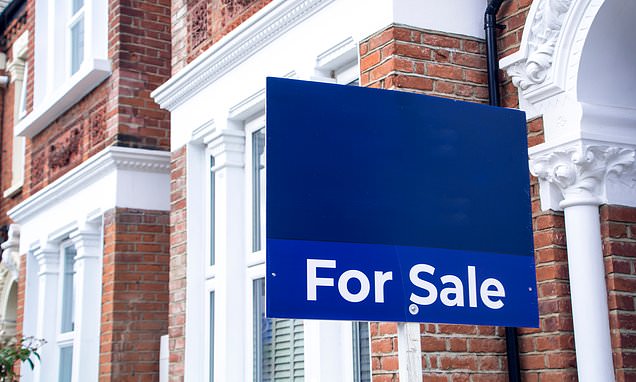First-time buyers receive a four-year head start on getting on the property ladder thanks to the Bank of Mum and Dad as one in ten new homeowners under 45 admit to getting help from their parents, study shows
- Average age is 26 rather than 30 for those receiving help to get their first house
- They can also put down bigger deposits, borrowing less to do so
First-time buyers given a leg-up by the Bank of Mum and Dad enjoy a four-year head start in getting on the property ladder, research suggests.
A Bank of England study also found that on average those receiving help from parents are able to buy more expensive homes while putting down bigger deposits and borrowing less to do so.
Those being given assistance are on average able to get on the housing ladder at the age of 26 rather than 30.
And the average 26-year-old with help paid about £254,000 for a first home while those with no aid had to wait until they were 37 to buy a property for an equivalent sum.
The findings were compiled by Mary Rostom, an analyst at the Bank for its ‘Underground’ blog – though this is not an official report.

The average 26-year-old with help paid about £254,000 for a first home while those with no aid had to wait until they were 37 to buy a property for an equivalent sum (Stock Image)
She found that out of every 100 new homeowners below the age of 45, ten will have had help from the famed Bank of Mum and Dad, or Bomad for short.
That rises to 28 per cent of first-time buyers among those under the age of 25.
The survey found: ‘On average, deposits are two and a half times larger, loans are 30 per cent smaller and houses cost £15,000 more for those getting help compared with those who are not.’

With smaller mortgages, Bomad borrowers tend to have lower monthly repayments and so have more disposable income.
The research underlines that receiving help ‘can affect your entire home ownership trajectory – exacerbating the differences not just across generations but within them’.
The figures come at a time when those struggling to get onto the housing ladder are already being hampered by soaring mortgage rates.
And even as they try to save for their deposits, rents have hit a record high. Molly Broome, economist at the Resolution Foundation, think-tank said: ‘A society where your chances in life are more dependent on who your parents are than your own talent and income is not a just or successful one.’
Source: Read Full Article

